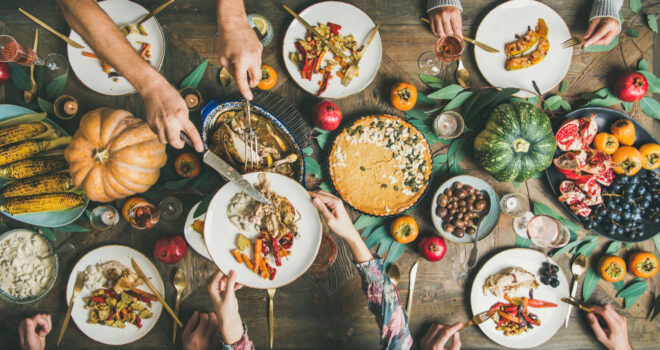Given the increased consumption of plant-based food in recent years, the Louis Bonduelle Foundation has become interested in how households implement government recommendations, in particular in terms of preventing waste.
Vegetables are the first victims of food waste, accounting for 24% of the contents of French dustbins. An analysis of daily food practices in several households, which focused more specifically on eating meals together, highlighted the contradictions that may exist between the Stop Waste campaigns and the guidelines of the National Nutrition and Health Programme (Programme national nutrition santé, PNNS) in terms of the daily consumption and storage of plant-based foods in households.
Enjoy vegetables without wasting them
Eating together enables you to vary what you eat and to enjoy your food more. At the same time, this practice can also become a source of food waste, through the mismanagement of quantities and storage. Plant-based foods are the first food to fall victim to waste: perceived as ‘healthy products’ we buy them, cook them and serve them to ‘guarantee’ ourselves a good diet. The study showed that many of the vegetables that are bought are never actually eaten, and that much of those that are served end up in the bin because they were cooked as side dishes to the main meal.
How to eat together and use this as an opportunity to stop wasting plant-based food?
- Store vegetables at adequate temperatures based on their characteristics;
- Cook and adapt vegetable quantities;
- Use up leftovers of cooked vegetables in a new recipe to avoid repetitiveness;
- Give equal priority to vegetables and carbohydrates to give full value to products;
- Cook seasonal vegetables when fresh and freeze any leftovers;
- Share surpluses with people who need them.
‘Mismanaged waste’ as a contributing factor
Because plant-based foods are seen as ‘healthy’ foods, there are no restrictions when it comes to their consumption. They are added to the dish as a bonus, but not treated as a staple, a main ingredient of the meal, in their own right. This approach is a form of ‘mismanaged’ waste: while plant-based foods do not immediately contribute to food waste, they don’t actually respond to a physiological need either. If we are to reduce waste, it is vital that the image of vegetables should change so they are fully integrated into the eating habits of tomorrow’s consumers.



 Millet
Millet  Parsley
Parsley  Vegetable garden: growing sweet corn
Vegetable garden: growing sweet corn 









